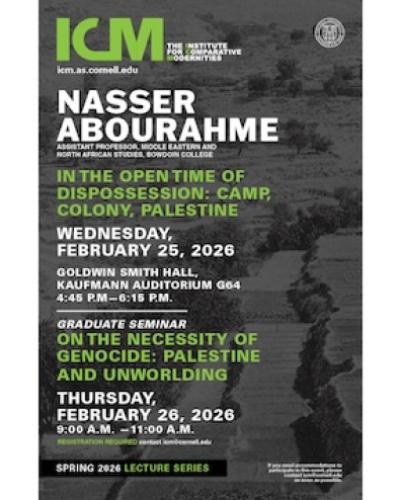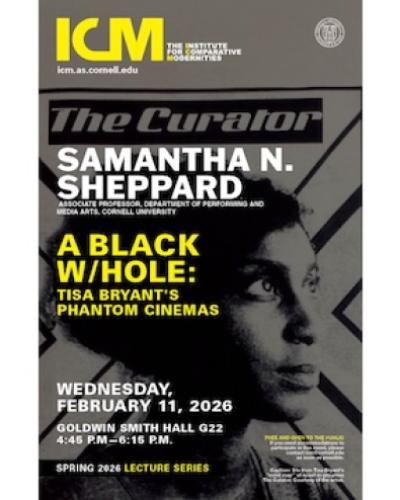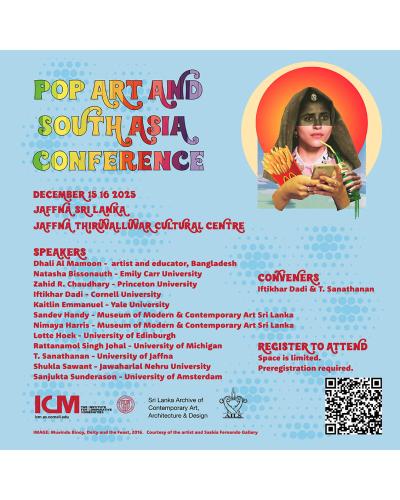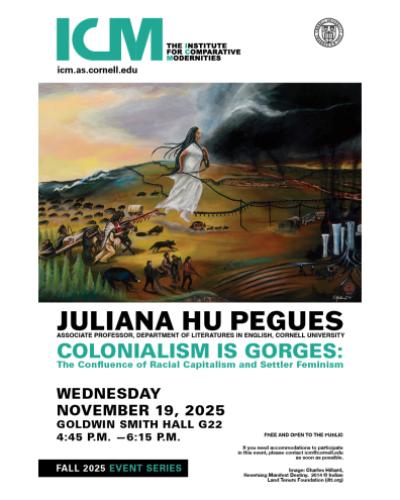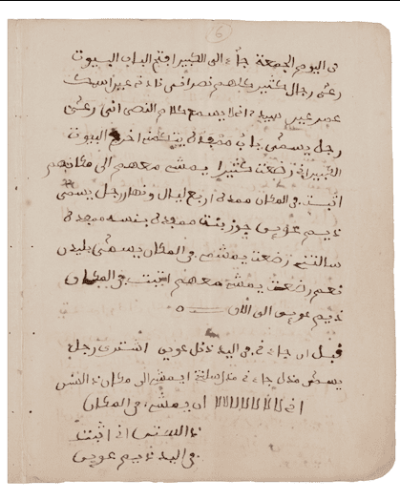The Institute for Comparative Modernites is delighted to announce the recipients of the 2021-22 Global South Translation Fellowships, grants of up to $5000 to complete translations of works from the Global South (Africa, Asia, Latin America, the Caribbean, etc) into English. This is a non-resident, remote fellowship designed to allow the recipient to complete the work outside of Cornell University. We received many more outstanding applications than we could support and look forward with excitement to future application cycles. The 2022 awards from ICM will support the following translation projects:
Abrona Lee Pandi Aden’s translation of select texts from Solon Karthak’s 2013 travelogue The World is the Next Village (Visva Euta Pallo Gaon) from the Nepali
This collection of travelogues by the award-winning, prolific contemporary writer Solon Karthak is an important and engaging intervention in the conventional terms of travel writing. His decades of work on Nepali niyatra, or travelogues, as both a writer and anthologist shaped the course of Nepali literary and cultural production. His south-to-south and south-to-north perspective challenges and de-centers the travel writing paradigm, particularly as they feature rich engagement with diasporic Nepali communities.
Abrona Lee Pandi Aden is Assistant Professor in the English Department, School of Languages and Literature at Sikkim University, India. She is currently translating Solon Karthak’s work under the aegis of Sahitya Akademi, India’s National Academy of Letters. Her research interests lie in the complexities surrounding the representation of gender and indigeneity in literatures, both in English and in English translation.
—
Conor Bracken’s translation of Haitian writer Jean D’Amerique’s 2020 poetry collection Atelier du Silence from the French
This collection is the latest poetry collection from Jean D’Amerique, a novelist, playwright, and poet, described by the Institut Français as a “standard-bearer of the new literary generation in Haiti [. He] has from the outset commanded an intense style to speak about his country and our world. He sensitively delivers furious poems and texts using a range of media, from the written word to the stage.” For Bracken, it is D’Amerique’s poetry in particular, with its single voiced persona, that captures a focused intensity in the language that takes on further urgency in a post-colonial/decolonial context.
Conor Bracken is a poet and translator. He is the author of Henry Kissinger, Mon Amour (Bull City Press) and The Enemy of My Enemy is Me (Diode Editions), and the translator of Mohammed Khaïr-Eddine's Scorpionic Sun (CSU Poetry Center) and Jean D'Amérique's forthcoming No Way in the Skin Without This Bloody Embrace (Ugly Duckling Presse). He lives in Ohio.
—
Whitney DeVos’s translation of Martín Tonalmeyotl’s 2016 bilingual poetry collection, Tlalkatsajtsilistle/ Ritual de los olvidados from the Atzacoaloya Náhuatl/Spanish
Martín Tonalmeyotlis is a Nahua poet, scholar, translator, and activist who has dedicated his career to the destigmatization and greater circulation of languages native to Mexico and the Americas. This collection of 34 lyric poems, written in genres from the Classical Náhuatl literary tradition, is an influential debut that confronts the devastating effects of global modernity—colonization, racial capitalism, climate change, and migration—in Guerrero, Mexico.
Whitney DeVos is a scholar and translator based in Mexico City. Her current translation projects focus on autochthonous languages in the hemispheric Americas, Nahuatl in particular. In 2022, she was named a National Endowment for the Arts literature fellow in translation; the award marks the first in support of a Nahuatl text. Involved in various editorial endeavors, most recently she helped curate the special folio "Translation in the 21st Century" as a consulting editor for the February 2022 issue of POETRY magazine.
—
Katherine Hennessey’s translation of The Collected Plays of Wajdi Al-Ahdal from the Arabic
Wajdi Al-Ahdal is a celebrated Yemeni novelist, a prize-winning playwright, and an author of film scripts and short stories, including the recently translated “Saghira’s Laws.” His plays have been acclaimed in Yemen and at theatre festivals in the Arab world, and in 2019, the Sarha Collective dramatized and staged A Land Without Jasmine in London. Al-Ahdal’s plays A Crime on Restaurant Street and The Colonel’s Wedding appear, respectively, in Arab Stages (2016) and Words Without Borders (2019), in Hennessey’s translation. In 2002, his novel Mountain Boats sparked political controversy in Yemen, forcing him to seek refuge in Damascus, until Nobel Laureate Günter Grass interceded on his behalf.
Katherine Hennessey is the author of Shakespeare on the Arabian Peninsula (2018) and of numerous articles and essays about contemporary theatre and film in the Arab world. Between 2009 and 2014, she lived in Sana’a, Yemen, where she became acquainted with the rich and compelling but little-known history of Yemeni theatre, and with many of its talented contemporary practitioners, including Yemeni playwright Wajdi Al-Ahdal. That experience changed the trajectory of her academic research and kindled her interest in literary translation, as a means of making Yemeni theatre more accessible to audiences outside of Yemen. Her short film Shakespeare in Yemen, produced in collaboration with Yemeni director Amin Hazaber, premiered at NYC’s Signature Theater in 2018, and her English version of Ziyad al-Qahum’s poem “Last Tuesday” was the first translation from Yemeni literature to appear in World Literature Today (2021). In 2020-21 she held a Research Fellowship from the National Endowment for the Humanities.
—
Andrea Rosenberg’s translation of Lina Meruane’s 2014-21 nonfictional narrative Palestina en Pedazosz (Palestine in Pieces) from the Spanish
Lina Meruane is one of Chile’s most prominent novelists and essayists, as well as Clinical Associate Professor at New York University. She is also a member of the Chilestinian community—the largest population of Palestinian descent outside of Palestine itself. In 2014, her collection Volverse Palestina (Becoming Palestine) was published in two parts, and a third part in 2021, to reflect the events in Palestine and the Middle East. Palestine in Pieces represents the updated edition of each part, published under this revised title.
Andrea Rosenberg is a translator from Spanish and Portuguese. Her full-length translations include novels and graphic narrative by Manuel Vilas, Tomás González, Jorge Franco, Santiago Gamboa, Inês Pedrosa, Aura Xilonen, Juan Gómez Bárcena, Paco Roca, Ana Penyas, and Marcelo D’Salete. Her translation of Aura Xilonen’s novel The Gringo Champion (Europa Editions) was runner-up for the Queen Sofía Spanish Institute’s 2021 Translation Prize, her translation of Tomás González’s Difficult Light (Archipelago Books) was shortlisted for the National Translation Award in Prose, and two of her translations have won Eisner Awards. She has enjoyed residencies at the Banff International Literary Translation Centre and the Europäisches Übersetzer-Kollegium.
—
Sumathy Sivamohan’s translation of a collection of Sri Lankan poems, dating from the 1930s to the present, from the Tamil
This selection of 101 poems promises to be historically and politically informative as well as aesthetically inspiring anthology that represents political, historical trajectory and marks the contours of the Sri Lankan Tamil, Malaiyaha, and Muslim communities. The collection will forge a critical intervention in the study of Tamil literature in collecting voices that both represent and speak to one another about Tamil nationalism, ethnic conflict, dissenting voices of marginalized sexualities, Muslim voices, and left wing activism that foreground class and caste concerns.
Sumathy Sivamohan is Professor of English, Department of English, University of Peradeniya, Sri Lanka. Her academic research is in the areas of gender, dispossession, the displaced, and the fraught question of nation, Sri Lankan literatures, translation and performance and film studies. An award winning filmmaker (The Single Tumbler, Sons and Fathers, Ingirunthu and others), performer and play wright, poet and academic, her work emphasizes the idiom of conversation and colloquiality, while being experiments in form and style. She won the Gratiaen Prize for English literature in 2001, for Thin Veils (co-winner) in 2011 and was shortlisted for Like Myth and Mother in 2007. She was awarded the prestigious Premchand Fellowship by the Sahithya Akademi, India's National Academy of Letters, in 2012. All her work embraces translation as a politics, pedagogy and aesthetic. She is a militant activist of the cause of free education in Sri Lanka.
—
Jeremy Tiang’s translation of Hai Fan’s 2017 short story collection 可口的饥饿
(Delicious Hunger), from the Mandarin Chinese.
Hai Fan is a Singaporean writer who joined the Malayan Communist Party in 1976 and spent more than a decade in the jungle fighting in guerilla warfare against the authorities. The collection of stories in Delicious Hunger are mostly set in the Malaysian jungle and provide a chronicle of this important, often suppressed history of anti-imperialist and national liberation campaigns. The novel was selected as selected as one of the "Ten Major Chinese Novels of 2017" by Yazhou Zhoukan, the Chinese multi-national news magazine.
Jeremy Tiang has translated over twenty books from Chinese, including novels by Yeng Pway Ngon, Yan Ge, Zhang Yueran, Shuang Xuetao, Lo Yi-Chin, Chan Ho-Kei, and Yan Geling. His novel State of Emergency won the Singapore Literature Prize in 2018, and his short story collection It Never Rains on National Day was shortlisted for the same prize. He also writes and translates plays. He was named Translator of the Fair at the London Book Fair in 2019, and is currently the Translator in Residence at Princeton University.
Image from Omar ibn Said, The life of Omar ben Saeed, called Morro, a Fullah Slave in Fayetteville, N.C., ca. 1831. Omar ibn Said Collection (Library of Congress)

